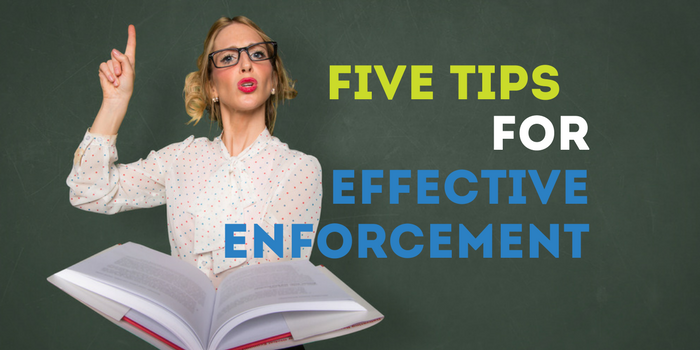One of the biggest mistakes we see are boards making inconsistent rulings or being very lax with what their CC&Rs say. While it may seem easier to let some things slide, like ignoring people who leave garbage bins in their driveway against HOA rules, your board will lose its effectiveness unless you fairly enforce all rules for everyone.
If this is a problem your board struggles with, here are five important enforcement guidelines to reference. As always, make sure to check your CC&Rs before following these tips, because your community may have slightly different regulations and rules for dealing with violations.
- As soon as you notice a violation, address it in formal writing. Formal doesn’t mean threatening legal jargon, but it needs to highlight the violation, the section from the CC&Rs talking about the rule, and an approved course of action, timeline, and consequences of non-action.
- Follow through. If the homeowner or tenant doesn’t resolve the issue, then give an appropriate fine as outlined by your original notice and CC&Rs.
- If action to address the problem still hasn’t happened, your HOA can place a lien on their property. Usually the fine or the lien is enough to get even the stubbornest of people to take action.
- If the homeowner still refuses to deal with the problem, it may be time contact the community lawyer to address the issue in court.
- As the very last resort, your HOA can consider initiating foreclosure against the homeowner. Again, this should only be used as the LAST resort, and only when all other avenues for resolution have been perused.
Every community will eventually have to deal with violations. Some will be minor, and some will be more significant. Regardless of the severity, it is important to address each and every violation fairly and in the same manner, regardless of who the homeowner is. Consistency is key, and it will make the job easier for all board members. If you have any questions regarding enforcement of CC&Rs, contact Spectrum today as we are always happy to assist!







